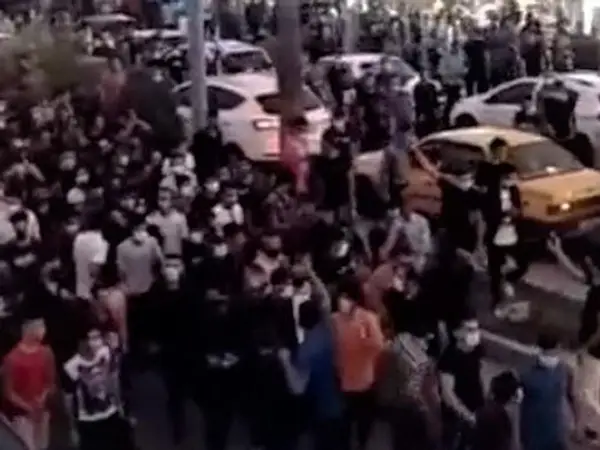Iran's intelligence ministry has tightened censorship rules for government-controlled media in covering ongoing protests, Iran International has learned.
The intelligence ministry has also summoned several journalists to demand explanations about their coverage, although the media has largely been silent about the protests that began on May 5.
Iran International has learned that on Sunday the intelligence ministry had convened a meeting with representatives of Government-controlled media to issue new restrictions. The authorities asked media managers to highlight a narrative that public property “is being destroyed by troublemakers and elements of foreign influence.”
Parallel with intimidating newspapers and websites, that are already under government control, authorities have disrupted internet access in at least 15 provinces. Security organs routinely slow down or shut off access during popular protests to prevent the people from sharing images and news in the absence of media coverage. Authorities are concerned about the outside world finding out details about protests and witness the use of force by security forces. They also do not want different regions of the country to find out about protests elsewhere.
Along with control of traditional and social media, the government has been jamming Persian-language television stations beaming news and programs into the country. The Voice of America, Iran International, Radio Farda, Manoto TV and BBC Persian are closely followed in Iran, where most households have satellite receivers to watch these stations.
Iran has developed technology to jam the satellite signal close to the ground with special mobile jammers that move into areas where the government does not want people to get independent news and information. In recent days, the government is focusing its jamming in areas where there are protests.
The intelligence ministry’s new restrictions do not just apply to the coverage of protests but also more broadly to the issue of economic policies that triggered the ongoing protests.
The government of President Ebrahim Raisi announced in early May that it would end special food import subsidies in place since 2018, when the United States pulled out of the nuclear agreement known as JCPOA and imposed serious economic sanctions.
Immediately following the announcement food prices jumped, with some items doubling or tripling in a matter of hours. The shock came as the income of ordinary Iranians has lost most of its purchasing power after four years of 30-40 percent inflation and a steep loss in the value of the national currency.
On Saturday, Iran International had reported that the government told the media not to use certain words and terminology when reporting on protests. These included words such as "economic surgery", "violent confrontation", "clashing with people" and "sit-in", threatening media outlets with judicial penalties.
“Economic surgery” is a term used by many government officials, including first deputy prime minister Mohammad Mokhber, to refer to the elimination of food import subsidies. Later, an unnamed security official denied that such a directive was issued.
